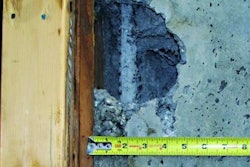With failure of the Congressional Super Committee to produce a budget-cutting proposal, the sequestration process that has been triggered will need to cut the deficit by $984 billion over ten years. This number reflects the $1.2 trillion in cuts outlined in the Budget Control Act minus the interest savings that will be achieved from deficit reduction. The result is that a little more than $100 billion in deficit reduction will be achieved annually through sequestration.
For mandatory spending programs, cuts will be done automatically each fiscal year. Construction programs funded from the Highway Trust and FAA Airport Improvement Program – which are considered mandatory spending – are exempted from these cuts but spending will be limited to the revenue in the respective trust funds.
For discretionary spending programs, cuts will be done automatically in fiscal-year 2013 to discretionary spending programs in the sequester base. For FY 2014-2021 the discretionary sequester is achieved by lowering the discretionary spending caps by the sequester amount. That will allow the House and Senate Appropriations Committees to make choices about how to achieve those spending cuts on a program-by-program basis rather than via an across-the-board spending cut. Both the across-the-board cuts and lower spending caps will have an impact on federal construction programs that are considered discretionary.
As these cuts will not go into effect until 2013, Associated General Contractors will continue to make the case for construction and will work with members of Congress to illustrate the impact construction spending has on our economy and the role these investments can play in deficit reduction.
Super Committee Fails: Prolonging Construction-Market Instability
Super Committee Fails: Effect on Taxes
Super Committee Fails: Effect on Infrastructure Spending
Super Committee Fails: Changes to Today's Congressional Agenda


















